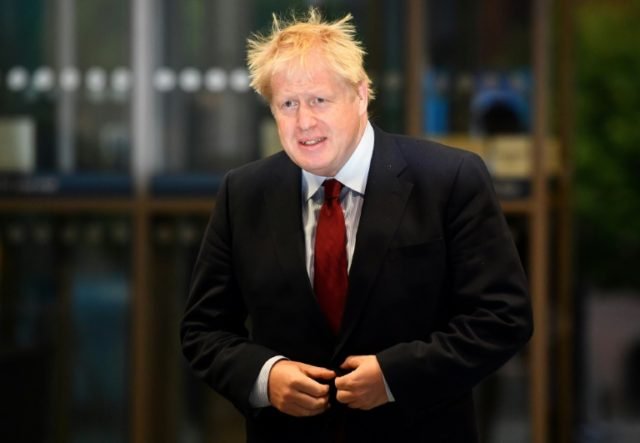UK PM to unveil new Brexit plan - and threat

Manchester: Prime Minister Boris Johnson will unveil his plan for a new Brexit deal at his Conservative party conference Wednesday, warning the EU it is that or Britain leaves with no agreement this month.
Downing Street said Johnson would give details of a "fair and reasonable compromise" in his closing address to the gathering in Manchester, and would table the plans in Brussels the same day.
It stressed this would be a "final offer", and that if the European Union "does not engage" then Johnson would keep to his threat to leave on October 31 with no deal.
The prime minister would "in no circumstances" ask to delay Brexit at a Brussels summit on October 17 and 18, it said in a statement.
"Let's get Brexit done -- we can, we must and we will," Johnson will tell delegates.
Johnson has received a rapturous welcome at the first party conference since Conservative members elected him as leader in July with one purpose -- to get Britain out of the EU.
Under the slogan "Get Brexit Done", he and his ministers have repeated over and over that the country will leave the bloc on October 31.
But like his predecessor Theresa May, he has struggled against a hostile parliament and the complexities of untangling four decades of integration with the European Union.
He has pledged to renegotiate the exit terms May agreed with Brussels, which MPs rejected three times.
He is focused on reworking the so-called backstop plan, which aims to keep open the border between British Northern Ireland and EU member Ireland.
May's proposal would have kept Britain in an effective customs union with the EU, which critics argued would force London to abide by the bloc's rules indefinitely.
The Daily Telegraph newspaper reported that Johnson instead wants to keep Northern Ireland in the EU's single market until 2025, but in a customs union with the rest of Britain.
The EU is likely to push back against the plans, and at a conference event late Tuesday, Johnson acknowledged getting a deal would be tough.
"This is not a walk in the park, but we have made huge progress and I hope that in the course of the next few days we are going to get there," he said.
Johnson has used the conference to try to rally his party after a turbulent two months in office -- and ahead of a snap election many believe is increasingly likely.
He lost his majority in parliament after 21 of his own Tory MPs rebelled to back an opposition law preventing a "no deal" Brexit.
The Supreme Court also struck down his decision to suspend parliament.
Johnson has responded with defiance, pitching himself as the champion of Brexit in the face of a pro-European establishment.
The party has also made a string of pre-election pledges on hospital funding, police and infrastructure this week.
Media coverage of the conference has been overshadowed by an allegation -- denied -- that Johnson groped a young journalist 20 years ago.
Many delegates here brushed off the scandal, focusing instead on his Brexit plan.
But if he cannot get a deal, and has to delay Brexit, Johnson risks a major backlash.
"He's got to do what he promised," said Sharon Leigh, 57, party member from Manchester.
"If he doesn't stick by this there will be a lot of people going to be very, very disappointed."
Parliament is still sitting this week, after MPs refused to grant Johnson the usual conference mini-recess.
But the premier is snubbing MPs by holding his speech at the same time he should be taking questions in the House of Commons.
Attention on his final speech will likely be dominated by the reaction to his Brexit plan.
Johnson earlier denied a media report that he was looking at installing customs posts along the Irish border, amid outrage from Dublin.
The issue is hugely controversial, as the removal of border posts was seen as key to bringing peace to Northern Ireland after three decades of deadly violence over British rule.
But Johnson said it was "reality" that there would have to be checks somewhere after Brexit, while adding they could be "absolutely minimal".















































